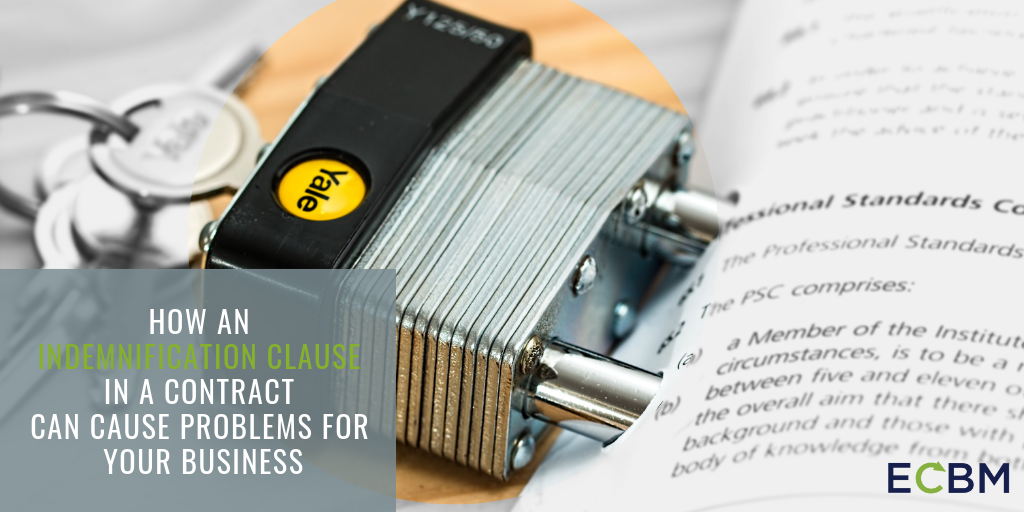
Risk transfers are a vital aspect of any comprehensive risk management plan. Theoretically, those in the best position to avoid a risk should always bear responsibility for the risk. The real world does not work that way, unfortunately. Oftentimes, larger companies and larger contractors use risk transfers to try and push liability “downhill” – onto the backs of smaller companies with less negotiating leverage.
Indemnifications Clauses In Contracts
Indemnification clauses are a major mechanism through which companies accomplish this type of risk transfer. They are also a prime example of why these types of contracts need to be read, negotiated, and fully understood before being entered into. Many companies will try to obtain the broadest indemnification possible, even if that means pushing an indemnification clause past the point of legal sense, or even legal enforceability.
What Is An Indemnification Clause?
An indemnification clause basically states that Company A will indemnify Company B against the negative consequences of actions taken by Company A. This means that Company A will pay on Company B’s behalf a host of potential costs – legal fees if Company B is brought into a lawsuit, fines and penalties, even potentially economic damages like lost profits from a delayed opening. Companies need to be aware of the type of damages and injuries for which they agree to be responsible in indemnification clauses. Several of the common listed types of damages in indemnification clauses will not be covered by insurance, such as penalties and fines.
While Common, There Are Sometimes Troublesome Indemnification Clauses
Reasonable indemnification clauses will state that the clause only applies if Company A commits an act of negligence or willful misconduct, including breach of contract. However, occasionally we see indemnification clauses that go so far as to state that a mere allegation of negligence against Company A suffices to trigger the indemnification clause.
A sample indemnification clause s provided below as an example.
-
Indemnification: To the fullest extent permitted by law, Seller agrees to defend, indemnify and hold harmless Buyer, its officers, employees, and agents from injuries, damages , fines , penalties, liabilities and/or losses, including costs and reasonable attorneys' fees , arising from (a) the negligent acts and omissions of Seller, (b) willful misconduct of Seller, (c) the alleged or actual breach by Seller of any of its obligations or warranties under this PO, (d) claims against Ocean Spray by subcontractors used by Seller, and (e) Seller's failure to adhere to Laws. Notwithstanding the above, Buyer at its sole discretion, reserves the right to defend Itself; such election by Buyer shall not in any way limit the Seller's responsibility to indemnify and hold harmless as provided herein.
Check Your Contracts
Companies need to consult with attorneys where feasible to ensure they understand the scope of indemnification in such a contract before signing it, as these clauses can greatly increase a business’ exposures and potential for loss. It is also worthwhile to ask that indemnification clauses apply mutually to both parties, though companies in a weakened bargaining position may not be able to obtain this.
Have Someone On Your Side To Protect Your Company From Unnecessary Risk
It only takes one bad paragraph in one contract to wrap a company up in multi-million dollar litigation that will take years to resolve. An ounce of prevention in this area is worth a pound of cure, and that ounce of prevention starts with spotting these potential liabilities and pushing back against them where possible.



